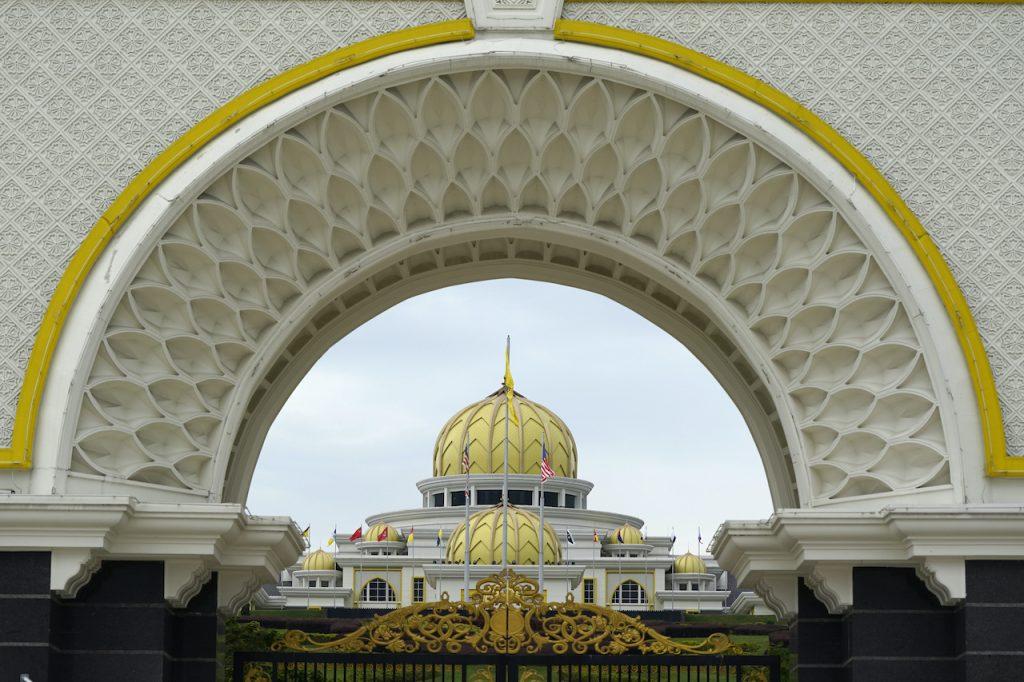Ex-CJ says harmony between palace and govt a thing of the past
Abdul Hamid Mohamad attributes this to the introduction of amendments under the administration of Dr Mahathir Mohamad.
Former chief justice Abdul Hamid Mohamad says Malaysia’s system of constitutional monarchy operated harmoniously for four decades with both the executive and the Malay rulers carrying out their duties within their respective boundaries, but that this changed during the administration of Dr Mahathir Mohamad who introduced amendments that curtailed royal powers.
Hamid said the real reasons behind the landmark amendments to royal powers pushed by the Mahathir government were unclear.
“The persons who know best why the amendments needed to be made are Mahathir and Anwar Ibrahim,” Hamid said in a recent analysis on the relationship between the government and the monarchy in the last year, which also criticised the Yang di-Pertuan Agong for various actions deemed as political interference.
Anwar, who was Mahathir’s deputy prime minister in the 1990s before his dramatic sacking in 1998, was among the strongest advocates of curtailing the powers of the Malay rulers.

The changes included a constitutional amendment where any bill passed by Parliament would automatically become an act after 30 days, even if it did not receive the consent of the Agong, as well as the establishment of special courts to try sultans in criminal and commercial cases.
Hamid, who retired as chief justice in 2008 after five decades of service in the judiciary, had himself presided over a special court involving then Negeri Sembilan ruler, the late Tuanku Ja’afar Tuanku Abdul Rahman, where he instructed the former Agong to pay US$1 million to the plaintiff, a commercial bank.
Hamid’s comments are part of a lengthy 11-page essay criticising the actions and statements by Malay rulers in the last year, including during the recent power vacuum which ended with Ismail Sabri Yaakob’s appointment as prime minister.
He said the Malay rulers had survived the post-World War onslaught on monarchies experienced by countries such as India and Indonesia which discarded their feudal rulers.
He said this was due to Umno leaders during the British era who fought in defence of the Malay rulers, culminating in their retention in a constitutional monarchy system after Merdeka.
“The constitutional monarchy system ran smoothly for about 40 years with the rulers and government in mutual respect and each performing their respective duties laid out by the constitution. The government consulted with the king wherever needed. The king followed the government’s advice wherever required,” said Hamid.
But he said this arrangement changed with the constitutional amendments that effectively made it incumbent on the rulers to heed the advice of the government.
He said the palace resistance to heeding the government’s advice was shown last year when the Agong refused to declare a state of emergency recommended by then prime minister Muhyiddin Yassin.
Read: Ex-CJ says palace acted outside constitution, giving perception of interference in politics
He said this was followed by several instances in which the Agong went against his powers and constitutional authority.
Hamid compared this with the refusal of the palace to give consent to bills passed in the Dewan Rakyat, saying this was why the powers of the Malay rulers were curtailed.
“Sometime around 1984, problems arose over the king’s refusal to sign a bill that had been passed by Parliament, causing amendments to Articles 40 and 66 to be made,” said Hamid.
“The years 2020 and 2021 saw actions (by the palace) that were outside the constitution, which caused simple matters to become complicated,” he added.
Subscribe to our newsletter
To be updated with all the latest news and analyses daily.
